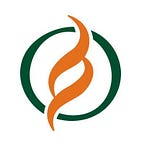In Madagascar, collaboration is key to getting medicines to the last mile.
Getting medicines and health supplies from procurement through the last mile to patients takes local leadership and coordination. As a partner under two USAID-funded health programs in Madagascar, MSH works with the Ministry of Public Health and partners to strengthen the health system and ensure that quality health services are available and accessible to all Malagasy communities where we work.
Through the IMPACT project, we strengthen the public-sector supply chain from the national to the district and community levels, improving access to medicines and people-centered services. The complementary ACCESS project builds on that work by strengthening the clinical skills of health workers so that quality services are available and used across the country.
National-level coordination
We help build the capacity at the national level needed to procure and dispatch medicines and health commodities for the entire population. Through IMPACT, we partner with the Ministry of Public Health to strengthen its staff’s skills for generating multiyear national forecasts and supply plans for malaria; family planning; reproductive health; and maternal, newborn, and child health commodities. These plans are then used to coordinate donor procurements and to advocate for and mobilize national-level financial contributions.
As a result of IMPACT’s support to the national quantification of malaria products, between 2019 and 2021, the U.S. President’s Malaria Initiative procured nearly 13 million malaria rapid diagnosis tests and more than 6 million artemisinin-combination therapy (ACT) treatments, and the Global Fund procured an additional 10.6 million rapid diagnostic tests and 2.4 million ACT treatments for Madagascar’s citizens.
Reaching districts and health facilities
To receive medicines and supplies from the central medical store, each district collects estimates of needs from every health facility for use by both the facility and community health volunteers who extend services into hard-to-reach communities. District and regional-level committees, led by Ministry staff and established with help from the IMPACT team, are responsible for reviewing stock levels, estimating needs, and developing distribution plans.
Across health facilities, ACCESS and IMPACT teams train health providers to do monthly stock inventory; analyze data reliability and accuracy; and report on stock information, like how many rapid diagnostic tests have been used or how many tablets have been dispensed. This enables health workers to know when to request additional supplies from the pharmacy, calculate quantities, and fill out order forms.
“Uninterrupted availability of essential medicines and health supplies is fundamental for delivering high-quality health care to communities across Madagascar. The ACCESS team follows on IMPACT’s capacity building at district level, working to coach and scale up guidance to community health workers at commune level”.
— Timon Anjaramijoro, Senior Supply Chain Advisor for MSH under ACCESS
Across the country, the ACCESS team builds on this work, strengthening the clinical skills of health workers so that quality services are available to all Malagasy communities where we work. Our training enables health workers to monitor pregnancy outcomes and provide life-saving drugs to prevent postpartum hemorrhage and cord infections among newborns.
Getting to communities
Through IMPACT, we’ve helped close gaps in transportation of products for emergency needs. Our operational support enables the transportation of essential medicines requiring refrigeration from district pharmacies to health centers, ensuring equitable distribution and availability at the point of care. IMPACT also helps district teams redistribute stock among health centers to avoid expiries and stock-outs.
To ensure that essential medicines and supplies get to the last mile, where medical care remains beyond the reach of many, ACCESS supports the training, supervision, and oversight of community health volunteers, who provide essential services to prevent and treat malaria and other common childhood illnesses at the community level.
Alongside the Ministry of Public Health, ACCESS conducts systematic training follow-ups, supportive supervision, and coaching so that clinical skills and competencies are maintained.
Today, more than 18,000 community health volunteers and nearly 2,000 health centers have been supported by ACCESS and are helping provide quality services across 14 regions in the country.
Return to Management Sciences for Health.
All photos: Samy Rakotoniaina, MSH
